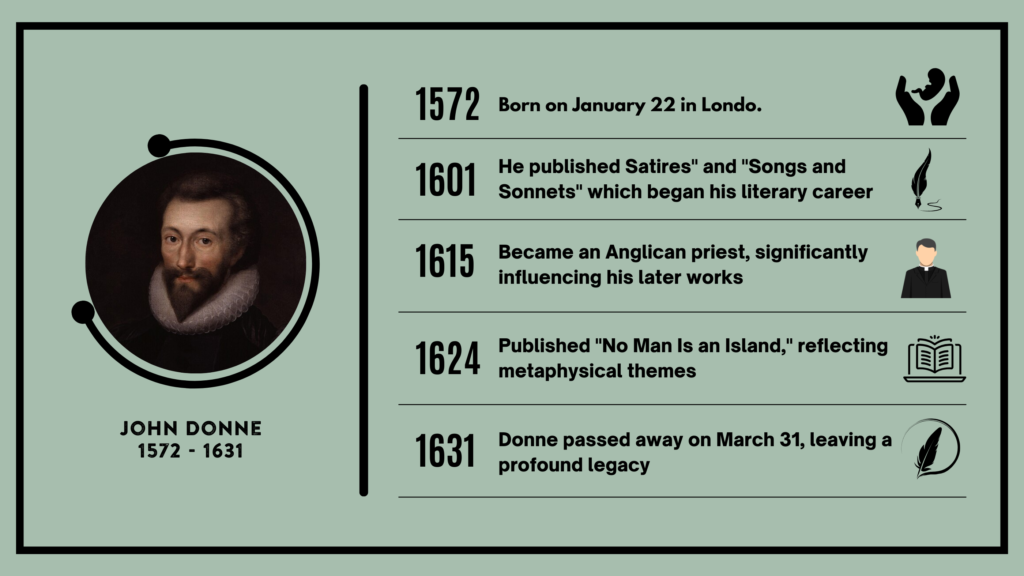No man is an island, Entire of itself; Every man is a piece of the continent, A part of the main.
If a clod be washed away by the sea, Europe is the less, As well as if a promontory were: As well as if a manor of thy friend’s Or of thine own were.
Any man’s death diminishes me, Because I am involved in mankind. And therefore never send to know for whom the bell tolls; It tolls for thee.
Who is John Donne?

John Donne (1572-1631) was an English poet, priest, and theologian known for his complex metaphysical poetry exploring love, spirituality, and mortality themes. A leading figure of the Metaphysical Poets, Donne’s work is characterized by intricate metaphors, profound emotional depth, and philosophical inquiries. His most famous poems include “The Flea,” “A Valediction: Forbidding Mourning,” and “Death Be Not Proud.”
In addition to his poetry, Donne served as a cleric in the Church of England and became the Dean of St. Paul’s Cathedral. His writings continue to influence literature and are celebrated for their innovative language and exploration of the human experience.
Impact Of The Poem
 No Man Is an Island by John Donne has had a significant literary impact, encapsulating the interconnectedness of humanity and the profound idea that individual identity is shaped by community. This meditation on human relationships emphasizes the importance of collective existence, resonating deeply with readers and thinkers across generations.
No Man Is an Island by John Donne has had a significant literary impact, encapsulating the interconnectedness of humanity and the profound idea that individual identity is shaped by community. This meditation on human relationships emphasizes the importance of collective existence, resonating deeply with readers and thinkers across generations.
Donne’s exploration of isolation and connection challenges the notion of individualism, influencing later philosophical and literary movements. The phrase has become a widely cited maxim, used in various contexts to underscore the importance of empathy and solidarity.
Overall, Donne’s insights into the human condition continue to inspire discussions about community and the shared human experience, cementing his legacy in the literary canon.




There are no reviews yet.